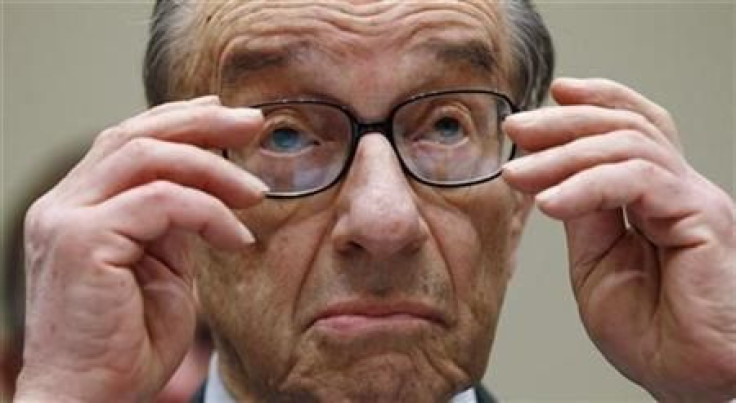BRIC Help for Euro Zone Has Echoes of 1998

The world's giant emerging economies have no magic wand to resolve the euro zone's debt problems, but a contribution to its stabilization could still prove powerful, help avert market panic and reap significant non-financial rewards.
Finance chiefs from the BRIC group -- Brazil, Russia, India and China -- meet this week in Washington and will discuss the possibility of investment in troubled euro zone sovereign bonds, in part to help relieve intensifying global financial stress.
The four fast-growing economies have a combined $4.3 trillion in hard cash reserves at their disposal, three quarters of it held by China.
The meeting reflects the level of anxiety among policymakers and investors everywhere about how the euro's seemingly intractable problems -- as well as the prospect of election-year policy paralysis in the United States -- could trigger the second steep global economic downturn in four years.
At a conference of former officials, policy experts and economists organized by the Oxford Analytica think tank last week, the mood was simply grim. Economic discussions, one entitled Doomed, were remarkable for the pessimism about collective action and fresh thinking in the halls of power.
Pointedly, former U.S. Treasury Secretary Robert Rubin -- speaking at the opening debate -- bemoaned a lack of international leadership in focusing minds.
Yet coming against a proposed BRIC intervention in the euro crunch, Rubin's personal concern has some historical resonance.
Little over a decade ago, Rubin, his then deputy Lawrence Summers and the sitting Federal Reserve chief Alan Greenspan were eulogized on Time magazine's front cover as The Committee to Save the World and lauded for their global initiatives to limit the impact of a series of emerging market collapses in the late 1990s.
Echoing a Greenspan speech made shortly after Russia's tumultuous sovereign default in 1998, President Bill Clinton warned in September of that year that the still-booming America could not remain an oasis of prosperity in a world of rising financial turmoil.
The global economy and mutual security interests, they argued, had become too interdependent for hubris. To act was not charity but quintessentially in national self-interest.
Thirteen years on, the fast-growing emerging world may come to the same conclusion.
WORLD TURNED UPSIDE DOWN?
It is hard to ignore the symmetry -- and no less the irony -- of those same developing nations now being in the reverse position of helping their former rich world benefactors.
But more importantly, the arguments of interdependence and national interest have not changed.
As with the post-Lehman world recession of 2008/2009, the fast-growing emerging world would once again get caught in the slipstream of another western market seizure and demand shock.
Chinese, Indian, Russian and Brazilian governments, for all their superior cash reserves and stable sovereign balance sheets, have a host of internal domestic imperatives to at least try to head off another global economic train crash.
For sure, buying Greek, Italian or even euro-wide bonds from the European Financial Stability Fund -- or even Brazil's suggestion of channeling support through the International Monetary Fund -- will not resolve a political crisis at the heart of Europe. But it may help prevent widespread financial panic while Europe itself searches for a solution.
And while buying the debt could hardly be described as a canny risk-free investment on paper, the decision for China and other BRICs would surely be assessed in terms of an economic prize of greater stability in client markets as well as a significant leverage at the top tables of global governance.
The quid pro quos for this sort of tangible BRIC support for western partner economies could be worth more in the long term than basis points on a sovereign bond portfolio.
Horses up for trading could include greater western market access -- China's search for market economy status or support for Russia's membership of the World Trade Organisation, for example -- as well as more chairs and shares at the International Monetary Fund or even support for a reshaping of world reserve assets and currencies.
Whatever they put on the table would be a bargaining chip, said Rory McLeod, Managing Director of Oxford's Objective Analysis.
BRICAID?
For sure, many emerging market investors baulk at the prospect of BRIC countries frittering away hard-won cash reserves in support of cash-strapped Western governments.
It is a very bad investment to buy sovereign bonds in the EU. They are either going to yield next to nothing in a currency which will lose value...and/or they might default. There is even a chance of capital controls, Jerome Booth of Ashmore Investment Management told clients about the prospect of BRICaid.
Yet Booth also suggested a wish-list in return for BRIC support, including permanent United Nations seats for Brazil, Russia and India, greater trade openness in areas like agriculture, and more investment openness in real sector assets in the West.
The originator of the BRIC acronym and investment thesis, Goldman Sachs Asset Management chairman Jim O'Neill, reckons at the very least BRIC countries may demand more clarity on how Europe resolves its crisis in exchange for ongoing support.
While it is tough to believe that the BRIC countries can coordinate any additional (euro sovereign) bond purchases between them, it is not difficult to see how they and other wealthy reserve countries would want to buy more bonds from a region where policy is clearer, O'Neill wrote on Monday.
The ultimate path of greater fiscal unity and a Eurobond - which seems to be rising in Germany behind the scenes - would naturally see enormous demand from those investors.
© Copyright Thomson Reuters 2024. All rights reserved.











